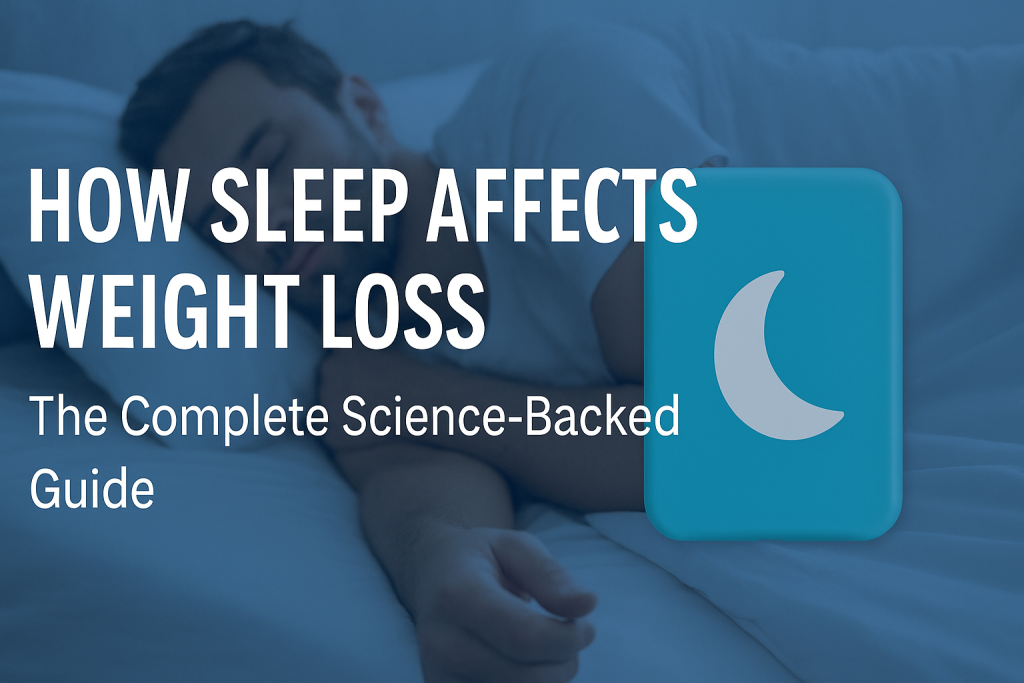How Sleep Affects Weight Loss: The Complete Science-Backed Guide
Weight loss is often attributed to diet and exercise, but there is another crucial factor many overlook: sleep. Mounting scientific evidence shows a strong connection between sleep and weight loss. Whether you’re struggling to shed those extra pounds or want to optimize your health, understanding how sleep affects weight loss is essential.
The Science Behind Sleep and Weight Loss
Sleep is not just a time for your body to rest; it is a period of complex physiological activity that impacts metabolism, hormone regulation, and energy balance. Consistently getting insufficient or poor-quality sleep can disrupt these processes, making weight loss harder and even contributing to weight gain.
Key Processes That Link Sleep to Weight Loss
- Hormone regulation: Sleep influences hunger and satiety hormones.
- Metabolic rate: Quality sleep helps maintain efficient metabolism.
- Energy balance: Sleep determines how calories are used and stored.
- Behavioral choices: Sleep-deprived individuals often make poorer food and lifestyle choices.
Hormonal Effects: Ghrelin and Leptin
Two critical hormones regulated by sleep are ghrelin and leptin. Ghrelin is often called the “hunger hormone” because it signals your brain that it’s time to eat. Leptin, on the other hand, signals satiety, telling you when you’ve had enough.
Lack of sleep increases ghrelin and decreases leptin, resulting in heightened hunger and reduced feelings of fullness. This hormonal imbalance can lead to overeating, cravings—especially for high-calorie, sugary foods—and ultimately, weight gain.
Research Spotlight
A study published in the journal PLOS Medicine demonstrated that individuals who slept five hours or less produced 15% more ghrelin and 15% less leptin compared to those with adequate sleep, making weight management significantly harder.
Impact of Sleep on Metabolism
Sleep does more than regulate hunger; it’s also vital for a healthy metabolism. During deep sleep stages, your body repairs tissues, builds muscle, and regulates blood sugar—all essential for an efficient metabolic rate.
- Insulin sensitivity: Inadequate sleep reduces your body’s sensitivity to insulin, increasing fat storage and diabetes risk.
- Resting metabolic rate: People who sleep less often have a slower metabolism, burning fewer calories at rest.
Muscle Mass and Fat Storage
Sufficient sleep supports the preservation of lean muscle mass, particularly crucial if you are dieting. Without enough sleep, more of the weight you lose will come from muscle rather than fat, which is counterproductive for long-term weight management.
How Poor Sleep Sabotages Diet and Exercise
Increased Appetite and Cravings
Sleep deprivation amplifies the brain’s reward centers, making unhealthy foods more appealing. Late-night snacking and poor portion control are more common when you’re tired, undermining your weight loss goals.
Reduced Willpower and Motivation
Fatigue caused by lack of sleep makes it harder to stick to a healthy diet or exercise plan. You’re less likely to work out and more likely to reach for quick, calorie-dense foods.
Behavioral Studies
According to research in the American Journal of Clinical Nutrition, people who sleep less consume an average of 385 extra calories per day than those who get adequate sleep—mostly from fats and carbohydrates.
Sleep Quality vs. Quantity: What Matters Most?
While sleep duration is important, sleep quality also plays a vital role in weight management. Interrupted or fragmented sleep can be just as harmful as insufficient sleep.
- Aim for 7-9 hours of continuous, restorative sleep per night.
- Prioritize a consistent sleep schedule and optimize your environment for better sleep quality.
- Monitor factors like caffeine intake, blue light exposure, and evening routines for optimal results.
Benefits of Good Sleep for Weight Management
- Better hormonal balance: Maintains healthy ghrelin and leptin levels to curb overeating.
- Improved metabolism: Helps you burn more calories efficiently.
- Enhanced energy: Supports regular exercise and active living.
- Lower stress: Reduces cortisol, a hormone linked to belly fat accumulation.
- Healthier food choices: Makes it easier to resist cravings and stay disciplined.
Tips to Improve Sleep for Weight Loss
1. Establish a Consistent Sleep Schedule
Go to bed and wake up at the same time every day, even on weekends. This trains your internal clock and improves sleep consistency.
2. Create a Sleep-Friendly Environment
- Keep your bedroom cool, dark, and quiet.
- Invest in a comfortable mattress and pillows.
- Limit exposure to screens and blue light at least an hour before bed.
3. Watch What You Eat and Drink
- Avoid large meals, caffeine, and alcohol close to bedtime.
- Opt for a light snack like yogurt or a banana if you’re hungry late at night.
4. Manage Stress Effectively
High stress can disrupt sleep and increase cortisol levels, making weight loss more challenging. Try meditation, deep breathing, or light stretching before bed.
5. Stay Active During the Day
Regular physical activity can help you fall asleep faster and enjoy deeper sleep. However, avoid vigorous exercise too close to bedtime, as it might interfere with your sleep cycle.
Frequently Asked Questions
Can you lose weight by just sleeping more?
While sleep alone won’t cause weight loss, getting enough quality sleep significantly supports your efforts by optimizing metabolism, appetite, and energy balance.
How much sleep is ideal for weight loss?
Most adults need 7-9 hours of quality sleep per night for optimal health and weight management.
Does sleeping less cause belly fat?
Chronic sleep deprivation increases cortisol production and insulin resistance, which are both linked to increased abdominal fat.
Conclusion
Sleep is a powerful, often underestimated ally in your weight loss journey. Prioritizing both sleep duration and quality can regulate appetite, fuel your metabolism, and help you make better health choices. Combine good sleep habits with a balanced diet and regular exercise to achieve your weight loss goals more effectively.


